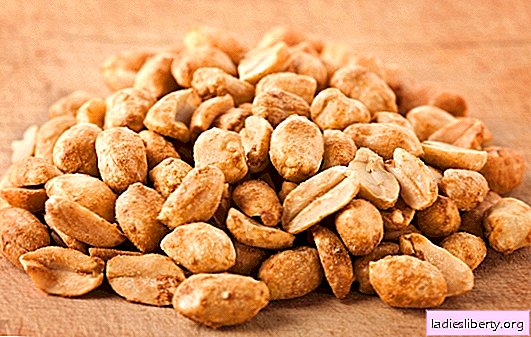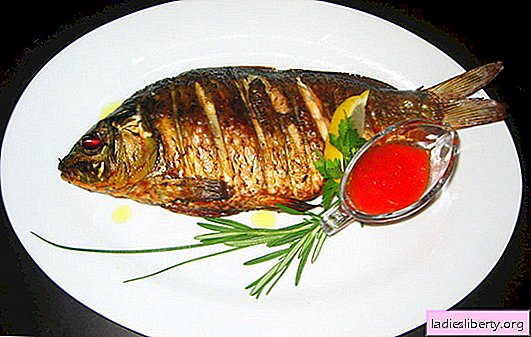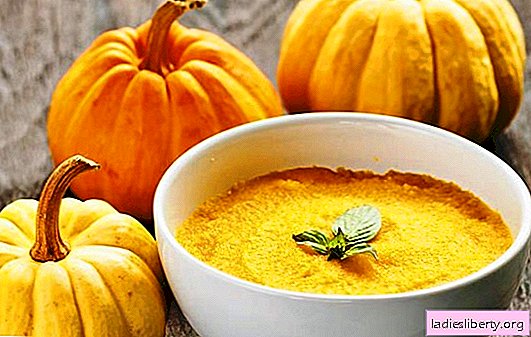
Roasted peanuts, at least salty, at least sweet, are incredibly tasty and very healthy. By adding nuts to your diet, you can easily improve your health without medication.
What explains the benefits of roasted peanuts and why it is so popular
Peanuts are also called peanuts because shells with nucleoli ripen when slightly submerged in the ground, and this is unique to nuts.
But in fact, peanuts belong to legumes, along with beans and peas.
Being one of the most popular nuts in the world, peanuts are very often used in fried, the most diverse form:
• simply dried - whole, crushed into crumbs or crushed into flour, added to pastries and desserts, cereals, creams and sauces, sausages, salads, snacks, first and second courses;
• salted - at the end of cooking, it is sometimes seasoned not only with salt, but with spices (garlic, paprika, hot pepper) and flavorings (cheese, bacon);
• sweet - can be coated with sugar, chocolate, honey or maple syrup.
It is customary to fry the last two varieties of peanuts in oil - salted on vegetable and sweet on cream. Most often they are used as a snack, but of course, both of them can be the ingredients of any dishes. Roasted peanuts also make famous peanut butter and pralines.
You can roast peanuts in a pan or in the oven, less often use a microwave and a slow cooker.
Most often, nuts that are already peeled are bought, but if the peanuts are bought in the shells, they are fried twice, first to dry, making it easier to remove the hard shell, then to take care of the palatability.
It is recommended to consume no more than 30-50 g of roasted peanuts per day, since it, like any nut, has a high energy value - about 600 kcal per 100 g.
But there is no need to be afraid of a high fat content (although their content reaches 50%) - peanuts mainly contain monounsaturated and polyunsaturated fats that do not harm the figure and are even useful for:
• removal of inflammatory processes in the body;
• strengthening immunity;
• muscle recovery and pain relief after physical, athletic stress;
• lower sugar levels;
• increase the strength and elasticity of blood vessels.
Nuts are no less valuable source of omega-3 and omega-6 fatty acids than seafood and even fish oil, so Peanut is highly effective for:
• improving the condition of nails, skin and hair;
• prevention of malignant neoplasms;
• treatment of skin diseases, including dermatitis;
• slowing down the collagen decomposition process, which ensures the health of joints, ligaments and smooth skin.
In addition, peanuts are a valuable source of proteins (25%) and, like all legumes, the quality of their protein is comparable to that of animal protein.
In terms of carbohydrate content (10%), peanuts are comparable to walnuts, but inferior to cedar.
Peanuts are saturated with minerals:
• potassium - important for acid-base balance, transporting nutrients to cells;
• magnesium - supports the nervous system, participates in the production of enzymes, is needed for the work of the muscular system;
• phosphorus - for the most part in the human body it is concentrated in bones and teeth, participates in metabolic processes, is necessary for the synthesis of energy and new cells.
Peanuts also contain zinc, sodium, selenium, manganese, copper and iron.
Heat treatment not only reveals and enhances the nutty taste and aroma, but also increases the saturation of peanuts with antioxidants that can slow the aging of the body.
What diseases will roasted peanuts benefit from?
Peanuts are effective against traditional winter ailments:
• relieves the inflammatory process and reduces sore throat;
• helps to cleanse the upper respiratory tract;
• restores vocal cords damaged by tonsillitis and laryngitis;
• soothes cough;
• gently acts as an expectorant.
Regular treats with peanuts (and any nuts in general) are good for the immune system and help not to get sick when the body is hypothermic, especially if mixed with honey.
Recent research by scientists has confirmed the importance of peanuts for the prevention and treatment of hearing diseases.
In case of liver diseases, roasted peanuts acts as a choleretic and accelerates the regeneration of its tissues.
How else is the benefits of roasted peanuts
A small portion of roasted peanuts saturates and provides an influx of strength for both physical and mental activities for a long time, and also increases concentration and improves mood.
With regard to the circulatory system and heart, the use of roasted peanuts is appropriate to compare with the effectiveness of red wine (consumed, naturally, in small doses), it is also:
• promotes the formation of blood cells;
• normalizes heart rate;
• increases blood coagulability;
• increases blood oxygenation;
• prevents the development of anemia;
• improves blood circulation, including the brain.
It is important to note the complete absence of cholesterol in peanuts.
If pregnant women are recommended to use peanuts with caution due to the increased sensitivity of the body during this period to potentially allergenic products, then while breastfeeding, the presence of nuts on the menu is very desirable to improve the quality and fat content of milk.
Also, it is worth noting the benefits of roasted peanuts for the following:
• elimination of toxins from the body (in terms of effectiveness in this regard, it is comparable to pomegranate);
• improving the work of the adrenal glands;
• general improvement in metabolism.
Could there be harm from roasted peanuts
Nuts are an allergenic product, and the reaction symptoms (headache, nausea, rash, shortness of breath) can be caused not only by a congenital predisposition, but also by overeating, and if another time you are not greedy, instead of the harm of roasted peanuts in all its splendor it will manifest benefit.
But recently, breeders have become preoccupied with the cultivation of varieties with an almost complete absence of allergenic proteins, and in this case, you can eat roasted peanuts without any harm.
Overeating peanuts is also fraught with the intake of excess calories in the body, which will soon be converted to extra centimeters in the problem area (waist, hips).
It is very advisable to peel the roasted peanuts from a thin brown peel, since it is quite difficult to digest in the stomach and slows down the intestines.
It is recommended to refuse peanuts altogether or eat it a little bit and not every day for some diseases:
• varicose veins;
• arthritis;
• arthrosis;
• pancreatitis;
• stomach ulcer;
• gout;
• obesity.
Do not eat spoiled nuts. Of particular danger is peanuts with greenish-yellow spots and a bitter taste - it is possible that it is infected with the spores of some harmful fungus, and then the potential harm to roasted peanuts is expressed in the digestive system, poisoning and even the possible provocation of cancer.











